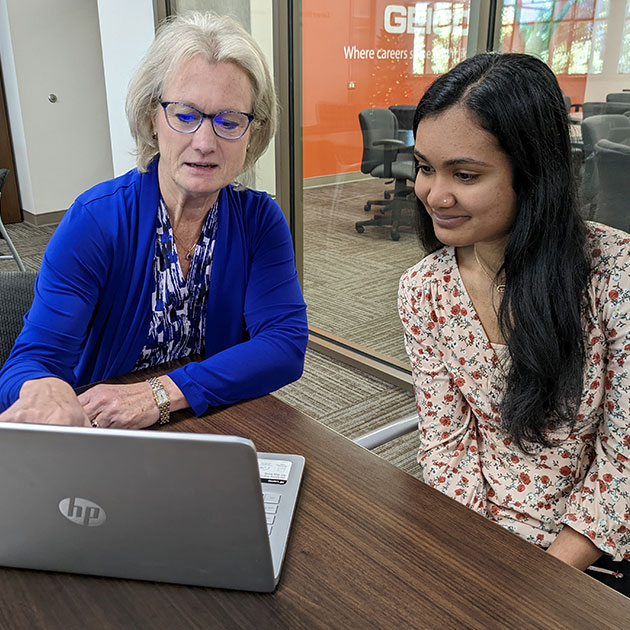Contents
Let’s explore some of the conscious and unconscious biases in resumes and learn preventive measures to avoid the “reject” pile.
Don’t get ready. Stay ready.
Graduation is almost here, and everyone wants to get hired. The issue I’m seeing, though, is that students are only motivated to improve their resume once a job opportunity becomes available. The resume is a continual work in progress and should constantly be updated, improved and critiqued. I tell my students, “Don’t get ready. Stay ready.” Borrowed from my celebrity role model, mixed martial artist and actress Ronda Rousey, this quote applies to your career search. Have your resume on your computer, and revise and review it on a weekly basis. Dedicate an hour each week to improve the wording, content and format of your resume. Ask yourself: “Would I hire me? Does each line have a purpose? Did I waste space by allowing a bullet point to turn into two lines because of merely one word?” An employer will spend seconds on your resume to determine if you will be a good fit. But you should spend hours upon hours critiquing your resume. You have one shot to make a good first impression. Make it count.
Be detail-oriented.
One of the unconscious biases in all resumes is the need to be detail-oriented. This applies to every resume in every position and every career field. Does your resume look aesthetically pleasing? And I don’t mean the over-embellished, overuse of bold, italics, and underlines. I mean does the content of your resume stand out more than the distractions of your resume? I am personally very critical about the resume format, and if the resume format is ugly, I’m too distracted by the format to even focus on reading the content. And if I’m too busy deciphering the content from the busy and distracting format, I move on to the next resume.
By being detail-oriented, you can avoid the possible distractions that can make your resume enter the “no” pile. Is your line spacing consistent? Did you use the same font throughout? Are your dates in each section in reverse chronological order? Are your dates all right aligned? Do your dates change from abbreviations (Sep.) to spelled-out (September) to mm/yyyy (09/2015) to mm/yy (09/15)? Also a piece of advice: Don’t go beyond the 1-inch margin. I see so many resumes that have font bleeding to the very bottom of the page that it gets cut off by HR web applications. If your resume goes beyond the 1-inch border, cut/condense the content but don’t adjust the margins to odd proportions.
Bullet points: Task-based versus skill-based.
Skills are transferrable; tasks are not. The tasks of your previous work position will be the same tasks as someone who takes over your previously held work position. However, the skills you utilized and the achievements you accomplished in completing those tasks could be vastly different. Let’s look at the example of being a teaching assistant and the task of “grading exams.” One resume could say, “Graded multiple-choice and short-answer exams for 40 students and conducted individual consultations to justify or resolve essay scores,” and another resume could say, “Utilized Microsoft Excel to identify class content with low-achieving examination scores and prepared post-exam tutoring sessions to address gaps of learning.” Both bullet points address the same task of “grading exams” yet demonstrate completely different skills and initiatives. Both bullet points are also skill-based instead of task-based, and sound stronger than simply saying “Graded exams.” Every TA grades exams. What else? Think about what distinguishes you from someone else who completed the same tasks required of your previous work position.
Your resume is your first homework assignment among many prospective employers. It is up to you to determine how much work you will put into this assignment. You may meet someone at a networking event interested in seeing your resume, and if you take too long or hand in something that isn’t quite the best representation of you, you may lose that opportunity. Stay inspired and focused. If you ask for feedback, be open to a critique. Make sure your resume is honest. And have fun! This is a very exciting opportunity for you in your professional development journey, and you have many resources at UT Dallas and JSOM that will help you along the way.





